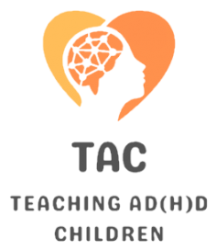
TAC was a European research project that aimed at providing teachers with specifically developed interventions to successfully support and teach children with AD(H)D in primary and secondary schools.
Why have we done the project?
Among the mental disorders of childhood and adolescence, Attention Deficit (Hyperactivity) Disorder (ADHD or ADD) occupies a prominent position due to its relative frequency – with a prevalence of 3 – 5 % worldwide.
Children with AD(H)D have significant difficulties in learning and social life. Teachers feel particularly challenged by the attention and discipline problems associated with AD(H)S. Regardless of their intellectual potential, the particular perceptual and response style of affected children often impairs their learning ability, memory, and emotion regulation, which can lead to lack of (mutual) understanding, stigmatisation, social exclusion, and even school dropout.
Over the past decades, a considerable body of knowledge about AD(H)D and supportive interventions has been accumulated in scientific and professional circles. TAC wants to contribute to adapting this knowledge for teacher education so that it can become a mainstay in mainstream school practice in the spirit of inclusive education.
What were the overall project objectives?
TAC aimed at setting the stage for the necessary updating of curricula and professional development for kindergarten, elementary, and secondary school educators to meet the needs of children with AD(H)D in mainstream schools.
To this end, TAC designed, developed, tested, and delivered a pedagogical competency framework for addressing AD(H)D-relevant behaviour in the classroom and ready-to-use training and professional development opportunities, culturally responsive to the contexts of the partner countries and suitable for integration into existing curricula.
The following objectives were taken into account when developing a culturally adapted programme in each of the partner countries:
🧠 Professional development and training of teachers and teachers in initial teacher training on the causes, nature and performance and individual needs of students with AD(H)D;
🧠 Provision of specific knowledge and support to develop a holistic approach to managing and supporting students with AD(H)D in mainstream classrooms;
🧠 Explore the preconceptions and attitudes of teachers and teachers in initial teacher training towards children with AD(H)D;
🧠 Develop and champion innovative, inclusive teaching approaches to promote access to and participation in the curriculum for all children with AD(H)D in mainstream schools, taking into account their specific learning needs;
🧠 Avoid premature diagnoses and medication
🧠 Reduce the stress burnout and attrition rates for teachers and educational assistants from kindergarten primary and secondary schools;
🧠 Reduce the financial burden for parents through the provision of resources and supports from external agencies.
What were the intended outcomes of the project?

🧠 Increased awareness and capacity of teachers to understand the phenomenon of AD(H)D in regular classrooms;
🧠 A comparative study on teacher attitudes, knowledge and skills about children with AD(H)D;
🧠 Training and further education programmes for educators adapted to the cultural characteristics of the partner countries for effective work with children with AD(H)S – in order to achieve the widest possible reach, following a threefold approach:
• a comprehensive teacher training module including practice (corresponding to approx. 6 ECTS);
• a freely accessible online learning offer with curated resource collection for teachers;
• a practice-oriented basic reading for initial information and orientation.
🧠 Pilot the TAC programme across each of the five participating countries to ensure culturally sensitive delivery for the final implementation of the project;
🧠 A research framework to evaluate and publish the implementation, efficacy and impact of the TAC programme on teaching practices in primary and secondary schools in each of the partner countries.





